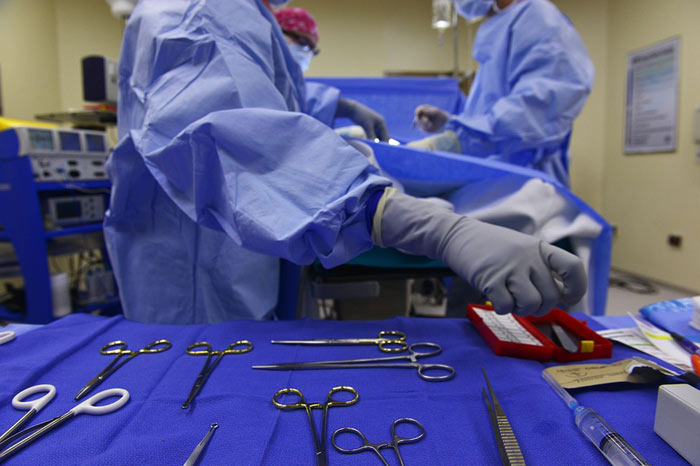If you are considering undergoing the labiaplasty procedure, one of your greatest concerns might be just how difficult the recovery period is going to be. After all, this is a major surgery being done on a very sensitive part of your body.

The labiaplasty procedure is growing in popularity as more women feel confident discussing their discomfort and embarrassment over the way that their labia look and feel. It is considered to be a very safe and very effective procedure that offers the patient both cosmetic and good functional benefit.
Recovering from surgery, the first few days
The procedure is typically done on an outpatient basis, and you’ll be sent home to recover in comfort once the anaesthesia has worn off. There will be significant swelling and possibly bruising. It’s important that you don’t have the expectation that your labia and the surrounding area will look normal at all. The swelling may even look alarming at first. But it will subside.
Applying a cold compress to the area for up to 15 minutes at a time will help to reduce the swelling and also help with the relief of pain. You may have prescription pain relievers, and you should use them if you feel the need to.
One of the tips that labiaplasty specialist Dr. Perron offers to his patients is to use a spray bottle filled with cool water when you need to urinate. While this may seem like a silly thing to do, the water will actually help to dilute the urine. Without this, you may feel much more stinging over your incisions. The spray bottle will also help keep you clean so that you can avoid using anything potentially abrasive over your tender skin.
Walking and extended periods of sitting may cause discomfort and even pain. Be sure that you can take time off from work for at least the first week after your procedure.
How long will the postoperative pain last?
By the end of the first week, your pain should have drastically subsided. It’s normal to feel some discomfort for up to a month after surgery, but it should be much more manageable after that first week has passed.
Be sure to call your surgeon if the pain is unbearable if you experience excessive drainage or fever. These could be signs of an infection.
What else can be expected during recovery?
 Many patients experience swelling and itching as their incisions heal. The swelling can be seen typically after just about every surgical procedure, as it’s often one of the ways that the body promotes healing after any sort of physical trauma. The swelling will be at its worst around the second and third days after the procedure but then should subside gradually as the weeks go by.
Many patients experience swelling and itching as their incisions heal. The swelling can be seen typically after just about every surgical procedure, as it’s often one of the ways that the body promotes healing after any sort of physical trauma. The swelling will be at its worst around the second and third days after the procedure but then should subside gradually as the weeks go by.
Itching is normal, to a degree. It shouldn’t last past the first week, however. If the itching does persist, it’s important that you meet with your surgeon, as itching could be a sign of an infection or allergic reaction that you will need to get treated.
Are there any things to do to speed the healing process?
Perhaps the best thing that you can do in order to ensure you heal at a healthy pace is to follow the postoperative instructions provided to you by your surgeon.
Minimise your activity for the first week after surgery so that you can allow your body to heal at its own healthy pace. It’s important not to be completely stationary, as you want to keep your blood flowing and your body moving slowly after any type of surgical procedure.
Cold compresses can help to reduce the swelling, and your doctor may prescribe an antibiotic healing ointment for you to use.
Be sure that you are eating a healthy diet and staying hydrated, as this can go a long way toward ensuring that your body is healthy enough to heal without complication.










